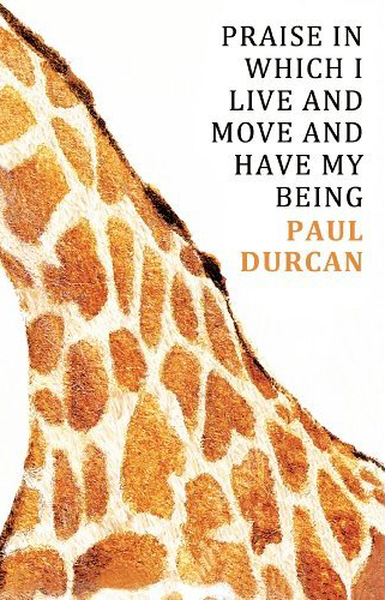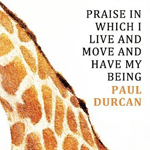Paul Durcan, author of numerous collections and winner of numerous prizes, is a prolific writer of poems and Praise in Which I Live and Move and Have my Being contains over eighty poems. Most of which, the two poems which are only two lines long aside, run on to a second page, which, on one side of the coin, is better value for money than the majority of the slimmer collections on sale these days, but, on the obverse, might make it harder to really get to grips with the collection, to find its heartbeat. The more poems a poet crams into a collection, the more throwaway nonsense the reader has to wade through, and there are plenty of, not terrible but not exactly memorable, poems in this collection which Durcan might have been better off discarding. On the plus side, the more prolific a poet the more likely he is to strike gold.
Gold, in a collection which lounges in Ireland and France but occasionally travels well beyond, is what the protagonist is after in ‘The Boy from Belarus’. An Irishman in a motel in Australia is watching a Belarusian competing in the final round of the Men’s Hammer Throw in the 2007 World Championships in Athletics in Japan, and the Irishman, who has not a jot of passing interest in sport, becomes engrossed in this underachiever, this competitor who, according to the commentator, has done nothing in the competition:
The boy from Belarus was a big, fat boy
With a seriously nice face. You could imagine him
Being kind and funny to his brother and sister.
Gripping the ball and chain, he revolved slowly
In the circle in the screened-off cage,
Beginning slowly to spin, accelerating,
Spinning as if he was totally out of it,
As if he was totally in the grip of the hammer.

by Paul Durcan
160 pages, Harvill Secker, £12.00
First we see what everyone sees, the competitor’s height, his weight, but then we are shown more, his kindness, his humour, his closeness to his siblings, a guess not a fact, but still something we did not see or think of with our first glance. Then comes the action, the spin, the determination, the narrator’s focus on the competitor and the competitor’s focus on throwing the hammer. There are many, too many, story-like poems in Praise in Which I Live and Move and Have my Being, ranging from an author who randomly autographs her own books on display in a Dublin bookshop, to a passenger on an eight-hour flight to Chicago chatting non-stop to a stranger. These poems can be prosy but can also be the source where Durcan channels the book’s humour from. Near the end of ‘The Boy from Belarus,’ Durcan momentarily becomes a rusty Philip Levine, ‘I googled it next day/In an office in a warehouse in Fortitude Valley’, and this line, its style not fitting the rest of the poem never mind the collection, falls flat on its face. But before that comes the moving, compelling victory for someone struggling to recover their form, the boy the commentator had no faith in:
The commentator was hyperventilating,
Howling hyperbole.
But the boy was laughing. He knew what he’d done
Without even having to look up from his spot,
Without even having to bother to track
The trajectory of his hammer-throw,
To witness its upshot,
His missile landing out beyond anyone else in the known world.
Even in more serious territory, Paul Durcan still sometimes employs the story element and always prefers the simply-worded sentence packed with sentiment over a cryptic stanza the reader needs a dictionary to understand. A mixture is nice, but Durcan often explores the former technique to stunning effect, although, sadly, not often enough. In ‘The Road to Vѐtheuil 2009’ he creates a romantic, warming scene in the blistering cold. After walking downhill to a French village, over snow, he arrives:
I stepped in out of the dark cold of the street
Into the illuminated warmth of her living room.
She stood there, cross-eyed in black
Like a pair of skis thawing out.
I stood there like a snowman in a red scarf
With corks for eyes.
In spite of the fun comic images, Durcan is being serious. The collection is garnished with a chunky block of elegies, such as ‘At the Grave of Michael Carr’, ‘Bernie’ and ‘Stage Four’, but he is rarely serious when it comes to the good things in life, in a way we can enjoy. Here, where the seriousness meets the ridiculous, it never gets easier to get inside Durcan’s head. Where relationship, love, friendship and companionship roll into one, the stronger of these is not the one which is talked about most but the one merely hinted at. This meet might include laughter and light-heartedness but its headiness is potent:
We stood face to face, talking nonsense,
Not having seen one another for six months,
Delighted to be doing that, and that only,
And not being expected to do or say anything else
But simply to be there and nowhere else











